GameSpotting Blue
Collect both versions of this color-coded GameSpotting for our thoughts on Mortal Kombat, the Commodore 64, TV Games, and more!
Welcome to the latest edition of GameSpotting, where we've made two identical versions of the feature in hopes of boosting page views. If this goes well, we'll soon follow up with an animated series, a collectible card game, plush dolls, backpacks, a theme park attraction, lunchboxes, and whatever else our licensing department can come up with. Anyway, while we get the likeness rights sorted out for all the individual editors, go ahead and peruse our latest editorial ramblings. You can also go to the forums to discuss this week's columns, or submit your own GuestSpotting column.
Greg Kasavin/Executive Editor
"Mortal Kombat: Deception is the logical solution to my problem."
Sam Parker/Manager, Files and Assets
"Who'd ever have thought the C64 would be as great a gaming system as it was? Millions of satisfied gamers can't be wrong."
Jeff Gerstmann/Senior Editor
"OK, so, a funny thing happened on the way to finishing Everything or Nothing."
Tim Tracy/Senior Producer, GameSpot Live
"Of course, this magic device was completely and totally unlicensed, was probably illegal to sell, and would probably burn your house down the second you plugged it in."
Rich Gallup/Associate Producer, GameSpot Live
"And although my home run stroke saw a resurgence through company softball, I have yet to hear of an impending release of Sammy Sosa's Softball Slam MMIV."
Tyler Winegarner/Associate Producer, GameSpot Live
"Zero Mission made me believe I liked the original Metroid a lot more than I thought I did."
Craig Beers/Associate Producer, GameSpot Live
"I'm personally rather excited about the prospect of the convergence of interactive entertainment and academia."
Aaron McMillan/GuestSpotter
"It is entirely possible, and common, for harmless aims to result in negative consequences. Defending something by calling it entertainment is not to defend it at all."
Melvin K. Poindexter/A Dork With a Story to Tell
Do you have some hilarious/poignant/touching story involving video games? Well stop being a selfish dork and share it with the world in this very forum! Read our GuestSpotting FAQ for details on submitting your own column.
| Greg Kasavin Executive Editor |
Kolor Me Badd
If you've been keeping score, then you've heard lately that Midway's got a new Mortal Kombat game in the works for the Xbox and PlayStation 2, which, among other things, will feature support for online play. Do you have any idea how much I want to play this game right now?
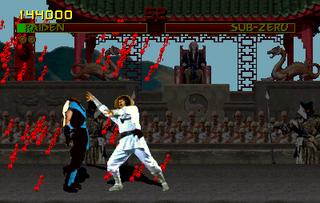
But I can wait, comforted by the thought that at least people are at work on this project, though I'll be anxious to see the fruits of their labors. After all: I love Mortal Kombat. Much like several of my colleagues here at GameSpot, including Jeff, Brad, and Ryan Mac Donald, I consider myself a huge fan of several games in the series, and I've been a fan ever since the original arcade game appeared in 1992. Though I was a full-bore Street Fighter II addict at that time, and many of my associates snubbed their noses at the mere notion that any other game could compare to Capcom's magnum opus, I soon found myself splitting my time between SF and MK. In fact, some of my first experiences with the Internet involved participation in an online consortium of hardcore players of both games. That's right--we had our own special club, and everything.
I used to resent people's dismissive attitudes toward the Mortal Kombat series. Wait a minute--yeah, I guess I still do, a little. Really, it's no different from the more-popular, more-mainstream attitude toward the Grand Theft Auto series--that it's a "killing simulator" and it's rotting the brains of America's youth and all that. You've heard it on the news, and you've heard it straight from the mouths of politicians and maybe others; but it's always coming from someone with no real authority to speak on the subject, seeing as, well, they've never sat down and actually played the game they're moaning about. Anyway, back in the early '90s, Mortal Kombat got the same rap. Sadly, the ranks of the ignorant included not just those looking for attention in the media but also gaming elitists, guys who couldn't stand the thought of pressing a block button, let alone playing an American-made game. I hope I'll never be as narrow-minded as that.
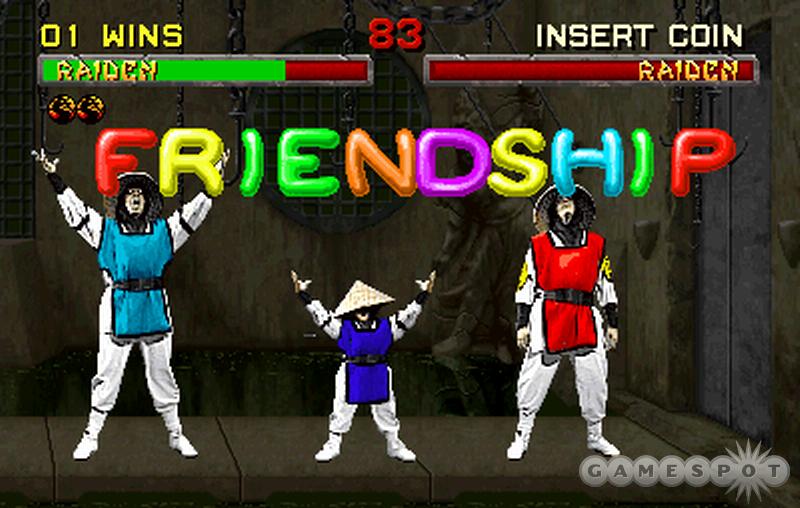
Yes, Mortal Kombat's violence and gore were one of its main attractions, from the get-go. You couldn't miss that game walking through an arcade. It was loud, it was surprisingly graphic, and, well, people would crowd around it. Admittedly, I can see why some people took Mortal Kombat the wrong way, straight from the title: "This game is teaching illiteracy to America's youth," I'm sure someone, somewhere, thought to him or herself in dismay.
Of course, the best thing about Mortal Kombat wasn't the gore, but the gameplay. If Street Fighter II is the first truly extraordinary fighting game, then Mortal Kombat is surely the second. Unlike shameless SFII imitators of the era--Fighter's History and World Heroes (for the record, these games later spawned original sequels that I think are outstanding)--Mortal Kombat had its own completely unique mechanics, combo system, and strategy. And the game was deep. Though the various characters' move lists weren't extensive, there was a lot of nuance to each individual fighter, and sure enough, each character was basically well balanced and competitive.
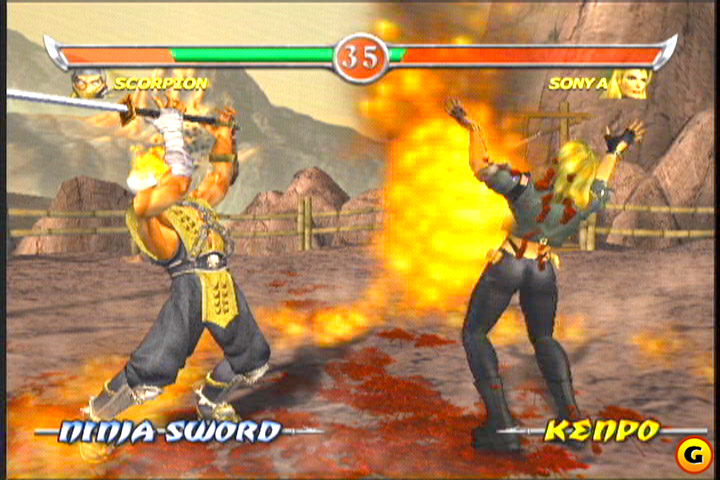
1993's Mortal Kombat II was a much better game, though. In fact, it's one of the greatest games of all time. So many cool, new characters and so much more depth were added to this sequel--and the whole game just looked so much sharper and better--that it just blew away its predecessor. Mortal Kombat II eventually eclipsed Street Fighter II in my book, and it wasn't until I became obsessed with Samurai Shodown later that year that I found a new favorite game. Even so, I continued playing Mortal Kombat II heavily and often, and to this day, I credit that game with having some of the best-designed fighting game characters the genre has ever seen. Characters like Reptile and Shang Tsung pretty much offered an infinite amount of depth to those willing to learn their tricks.
I liked Mortal Kombat 3 just fine--a lot, even, though my opinion of MKII was such that no game could really exceed it. Beyond MK3, though, the series went downhill for me. Well, Ultimate MK3 was an exception, and--I'm not reluctant to admit this anymore--along with Killer Instinct Gold, it's probably the best thing my Nintendo 64 ever did for me. Yeah, I liked GoldenEye and I liked Star Fox and I liked Mario and Pilotwings, but honestly, it's the fighting games that kept me coming back, despite that cruel controller. But anyway, when MK later went 3D, I wanted no part of it. In fact, much like the elitist snobs who didn't give the MK series a chance in the first place, for some reason, I was so offended by the decision to switch from digitized sprites to polygons that I was hardly willing to give the game a chance. I actually did give it a chance, and I didn't care for it...and that was that.
Currently, the situation is this: My wounds are still tender, even though I was quick to recognize that 2002's Mortal Kombat: Deadly Alliance was a quality game and just the sort of return to the series' roots that I really wanted to see. Yet what happened was, I never really played Deadly Alliance all that much. I accepted it as a great game, and that was enough. Frankly, I just didn't have anyone to play against in my spare time.
Mortal Kombat: Deception is the logical solution to my problem. You see, any Mortal Kombat fan would tell you that whatever joy there is to be found in playing against the computer in those games comes entirely from finding blatant, easily exploitable flaws in the artificial intelligence. That was cool and everything, but it didn't hold a candle to the experience of playing against a similarly skilled player. Now that MK is going online, we'll see if I can get my skills back into fighting shape. Like I said, I can't wait to start practicing.
| Sam Parker Manager, Files and Assets |
Nostalgia Time
Memory can play tricks on us all, and nostalgia often makes you remember old games looking better than they really do--at least, by today's standards. But the fact remains that true classics often still have the tight gameplay, the humor, or whatever the original charm when you go back and play them. There's still something unique and satisfying, a spark that defines them as entertainment that we might still relate to--like 1950s TV reruns on late-night cable--rather than mere museum pieces. At least, that's been my experience lately, digging out old Commodore 64 games that I grew up with.
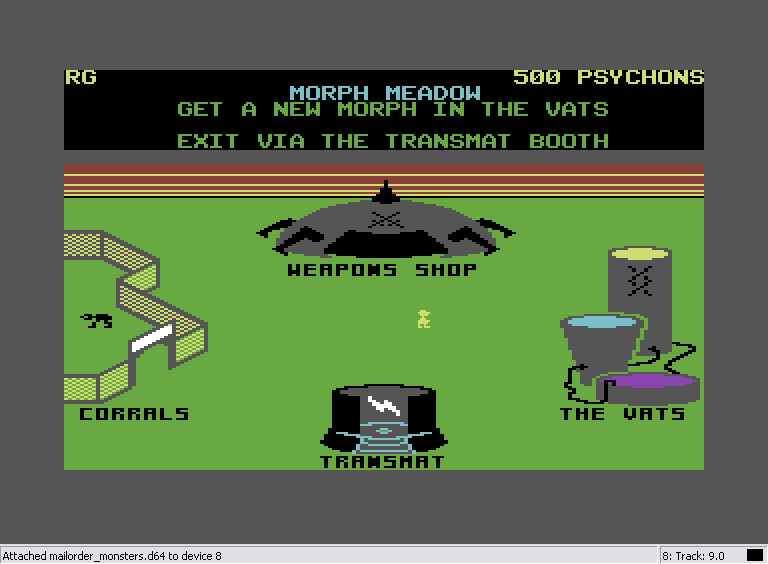
The nostalgia trip included a few rude awakenings. The first shock to hit came in remembering that computer games could be played with a four-axis joystick with a single button. How could computer games be played with such a simple control scheme? The mouse-and-keyboard decade has practically driven joysticks off the market, so it's no wonder they're easy to forget. The great thing about the C64 was that it used the Atari 2600 sticks that were so readily available in the '80s--if you didn't have a few of your own, or needed to replace a broken one, it was just a matter of picking one up at a swap meet or garage sale.
One side effect of the system depending on the original Atari console's controller is that it was perfectly ready for multiplayer games. While DOS games made you share a keyboard with a friend, getting ready for full-on action duels just meant plugging in another stick with the C64. Plus, it was never too hard to find opponents, since the simple controls were easy enough for practically anyone to learn and pick up, if just for a few uneven matches.
While some long-running PC franchises got their start back in the days of home computers--Ultima and SimCity come to mind--gaming on those early computer systems didn't seem all that different from console gaming. Sure, some of the games were pretty complex and already started establishing PC genre conventions that live with us today. But you could still set the system up on a TV, and there were millions of practically identical C64s out there, so there were few technical barriers to deal with, like unpredictable system requirements or daunting upgrades. In fact, the C64 had an amazingly long shelf life. Mine got daily use from the mid-'80s to 1991, when I got a VGA-ready PC just to play Wing Commander--well, that's not exactly how I explained it to my dad.
All the current PC gaming stereotypes break when you look back. It wasn't about fancy computer hardware, and a lot of games defied categorization. Lots of deep games mixed strategy with real-time action (Archon, Star Control, and Populous come to mind), role-playing with action (Starflight), or adventuring with action (Neuromancer). And there were plenty of games that were just plain hard. Without quick save or automapping, those games could be brutal. The first Bard's Tale games practically required you to graph out dungeons on paper. Then there was Sword of Fargoal, which played out like Diablo II in hardcore mode--there were no saves, plus the goal (the titular sword) was 15 or 20 random levels and many monsters away.
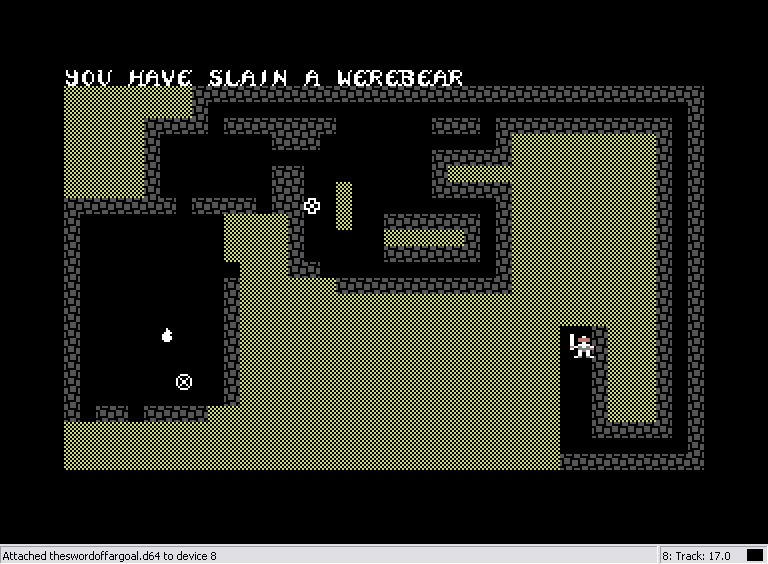
Not all games looked their best on the C64. There were tons of ports from the Apple II, Atari computers, DOS PCs, and even the Amiga. But ingenious programmers--often solo in those low-budget, low-resolution days--figured out how to squeeze games onto other platforms. But while I watched other computer systems quickly start to lose shelf space in the stores I frequented, the C64's sheer popularity (and mainstream price) let it hold its own against the DOS invasion. Sure, it was eventually time for game designers to focus exclusively on new hardware, and the biggest developers in that transition--I'd gladly name Origin, Bullfrog, and MicroProse at the top of my personal list--seemed to benefit from the transition for a while. Current independent studios can only hope to have as long a run.
These nostalgic musings have a few points. I can even spell them out: Computer games can be great with even the simplest controls. Save your old games to remind yourself why you loved them in the first place. And there's a long, rough-and-tumble history to gaming that usually defies contemporary predictions. Who'd ever have thought the C64 would be as great a gaming system as it was? Millions of satisfied gamers can't be wrong.
| Jeff Gerstmann Senior Editor |
The Cinematic Thing...Again
OK, so, a funny thing happened on the way to finishing Everything or Nothing. I actually started caring quite a lot about how the story was going to end. That normally doesn't happen to me. I'm a pretty gameplay-oriented guy, and game stories are usually so poorly told that, if I weren't playing games with the thought of having to evaluate them in the back of my head, I'd probably skip most of that stuff.
That Bond game, though, was different. That's not to say that the story itself was particularly great. I mean, hey, ex-KGB guy wants to use nanobots to take over the world... It's not exactly the most innovative plot in the biz, but the other facets of the storytelling added up to enough to make me genuinely care about the cutscenes. That's a nice twist.
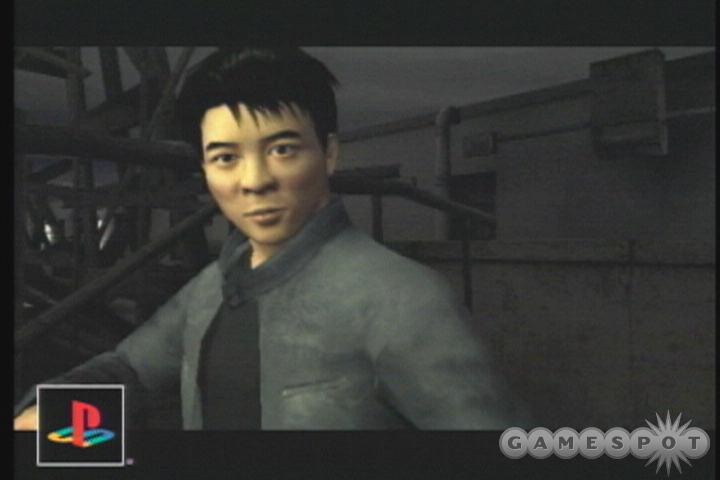
Sony's recent release, Rise to Honor, almost does the same thing, just not quite as well. The action and gameplay in Rise to Honor aren't really very exciting at all. On top of that, again, the plot isn't gangbusters. But the way it's told--the camera angles used in cutscenes, the option to hear it in Cantonese if you so desire, the pacing--turns it into something greater than the sum of its parts.
Graphics have a lot to do with it. Both games look pretty nice, and, perhaps not so coincidentally, they both star polygonal versions of recognizable actors. Seeing the computerman version of Jet Li beating guys up or watching a virtual Pierce Brosnan shoot bad guys in the face over and over again is surprisingly cool. The models look quite accurate, and the inclusion of voice and all that other stuff adds up to an experience that's, well, cinematic.
So it's too early to tell, but I'm going to go out on a limb here and say that this is a trend in the making. This is the direction movie games should be moving in. Aping a movie plot and breaking it up into a generic-as-hell third-person action game simply isn't interesting anymore. But telling a movielike story or featuring characters from films in all-new scenarios is, at the very least, a cool idea. And, when you back it up with rad gameplay, à la Everything or Nothing, it makes for a pretty slick package. If you don't, well, then I guess you end up with Rise to Honor. Or, if you're really unlucky, you end up with Enter the Matrix.
The way I see it, game publishers are going to try to go Hollywood either way. I'm sure that we'll see plenty more games that get the cinematic thing right but totally bone the "game" part of their game. Releases like Everything or Nothing give me hope that at least some of them won't sacrifice the important things--like gameplay--in the process.
If I may switch gears for a minute, I have to say that I'm pretty excited that there's a new Mortal Kombat in the works. But am I going to have to start some sort of silly Internet petition to get Midway to include Stryker in the game, or what? Can I get some Stryker love out there? Where are all my Stryker fans? Hello? Is this thing on? Anyone? Stryker? He...had a gun? Anyone? Does that ring any bells? Sigh... I'm convinced that I'm the only one who picked Stryker on a regular basis. Oh well.
| Tim Tracy Senior Producer, GameSpot Live |
I Want My TV Games
Late at night a couple of months back, I found myself flipping between all the really boring infomercials and home shopping stations when something caught my eye. It wasn't Ron Popeil's latest invention or Chef Tony's incredible set of knives, but a device that kind of resembled a Nintendo 64 controller that plugged directly into the TV and allowed you to play, of all things, hundreds of NES games. It was the type of thing that you've seen at flea markets before but just simply couldn't muster the courage to spend good money on. Of course, this magic device was completely and totally unlicensed, was probably illegal to sell, and would probably burn your house down the second you plugged it in. In all my years of playing and collecting video games, I've seen plenty of these crazy boxes for sale, but never on national television. I actually came pretty close to purchasing it, but I quickly came to my senses and decided to hit the hay.
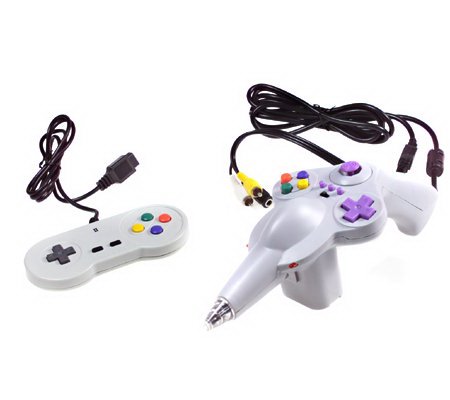
These products have always amazed me in a couple of ways. For starters, whoever creates them is able to effectively reengineer any given console and any number of games and put them into a completely different package. Shady and illegal as it may be, it's pretty darn neat. I've always been drawn to the simplicity of these devices--you just plug it into the TV, and that's it. I could definitely see how someone who didn't know much about video games could find them appealing.
Fast-forward to a couple of weeks later, when I found myself shopping for some new pants at a hip and trendy store in downtown San Francisco. Aside from the piles of T-shirts with goofy slogans on them and other random home furnishings, I happened upon two magical video game playing devices--one was playing Pac-Man, and the other had Yar's Revenge on it. I gave both of them a whirl in the store, and I was definitely impressed. I was even more impressed to see that both of them were actually officially licensed, legitimate products. As I came to find out by way of a news article soon after, Jakks Pacific, the folks that produce all of the WWE games as well as numerous different lines of action figures, has an entire line of these simple TV Games.
The Namco and Atari products were the first to hit stores, and they retailed for around 20 dollars, which, if you're looking for a quick retro gaming fix, is a pretty great deal. Being able to quickly and easily play Pac-Man, Galaxian, Dig Dug, Adventure, Yar's Revenge, and numerous other classic games is definitely cool. The fact that the entire device is roughly the same size as an old Atari joystick is even better. In addition to this, an Activision TV game just recently came out that features Pitfall and River Raid, among others. According to a press release on Jakks Pacific's Web site, the company also has a deal worked out with Capcom to produce a similar device, as well as deals in place to create new stand-alone games based on Spider-Man and SpongeBob SquarePants.

For someone who loves going back and playing the games I grew up with, these simple TV games are great. While they aren't completely and 100 percent accurate, they're close enough for me. Chances are that the average casual gamer who only wants to play a little Pac-Man isn't going to notice any difference at all. Perhaps the best thing of all is now that these classic games are getting harder and harder to find in their original forms, it's great that they have a new lease on life, especially in a form that's accessible to virtually anyone.
| Rich Gallup Associate Producer, GameSpot Live |
Swing Batta Batta Batta Batta, Sa-wing Batta
Here in San Francisco, the winter seemed to be composed of three days of rain, and now we're moving right along to spring. As a native New Englander, spring means two things to me--beware of mud, and this year, my friend, is the year of the Red Sox. And what better way can a gamer get ready for Pedro, Nomar, Manny, and the new kids on the block, Curt and Keith, than by spending some quality time with the likes of ESPN Major League Baseball or some MVP Baseball 2004? How else should I prepare for this destiny-laced season but by playing all 162 games of it before opening day on April 4?
As promising as those games and others look, and as excited as I am for the upcoming baseball season, I more than likely will not be purchasing any new baseball titles this year. I didn't buy any baseball games last year, nor did I buy any baseball games the year before that. This drought dates all the way back to the early days of your High Heats and Triple Plays. I may be a card-carrying member of the Red Sox nation, but there are no virtual Nomars or Pedros in my gaming collection. I while away hours a day on the Internet scouring box scores for my fantasy teams, but I spend no time on my couch beaning cyber-Jeters and pixilated Posadas.
Why would I avoid what promises to be countless hours of entertainment and a near-infinite number of bruised Yankees? Well, you see, the problem is...I can't hit. It's like sixth grade little league all over again. There comes a time when the talent of the pitching you face exceeds your batting skills, and video games crossed that line for me soon after Ken Griffey Jr.'s Slugfest. (For you next-gen kids with your short-term memories and your baggy jeans and your rap videos, that's the Nintendo 64 version of Slugfest, not the current Midway series.) And although my youthful home run stroke saw a resurgence in the bush leagues known as company softball, I have yet to hear of an impending release of Sammy Sosa's Softball Slam MMIV to save my virtual game.
As a youngster, I was taught to see the ball hit the bat, to watch that spinning horsehide all the way into my swing. Classic games like RBI Baseball and Bases Loaded allowed me ample time and had large-enough graphics to make hitting simple. Here comes the ball, wait for it, hit the button, and...base knock. These days, attention to realism has whittled the size of the baseball down from its beach ball shape of yesteryear to a properly scaled pea. Pitch speed has increased from the nonchalant three-seconds-to-the-plate float of a Bruce Hurst curve to Randy Johnson's dove-killing laser of half a second for the same simulated 60 feet and six inches. These days, any hope of hitting a ball is no longer about seeing the ball into your bat, but a matter of guess-and-check timing. After a few innings (or games) of practice, you learn how long to hold off on your swing. Through trial and error, you eventually know to wait the beat and a half or so after the ball leaves the pitcher's hand before swinging away.
Perhaps this is how it's done in the majors; I cannot say. You hope for the curveball, you swing approximately where you hope the ball will curve to, and if you guess right...base knock. Maybe that's why Tim Wakefield's poster was on my wall back in New Hampshire, his knuckleball hauntingly unguessable even for the pros. Until proven otherwise, I will assume that today's baseball game developers have achieved such accurate simulations of the real thing that their titles truly depict the speculation and lack of fun presented in the batter's box to the Muellers and Nixons of the world. Any big leaguers out there who can tell me how it's done, or would like to confirm that Tim Wakefield is in fact the man, write to me at
Maybe there's a set of enjoyable gameplay rules I have missed or a magical camera angle that can fix everything, but such things remain undiscovered in my simple pick-up-and-play sessions with friends. It's comforting to see that today's baseball games have expanded to include several options for the baseball fanatic who can't cut it on the field. Virtual general manager careers and dynasty modes mimic the career paths of many a major league wannabe on their progression from high school team manager to powerful executive. But signing Vladimir Guerrero doesn't give you his vision at the plate, and until hitting can be fun without cartoony players and baseballs trailing fire, baseball games for this diehard fan are stuck on the bench.
| Tyler Winegarner Associate Producer, GameSpot Live |
The Dirty Fight
It seems to me that, for the most part, if people don't end up enjoying the Game Boy Advance's extensive lineup of great games, they love Nintendo's latest handheld for its resemblance to the SNES and the ports of titles from that very platform. It's one thing to dust off your SNES to relive those fond memories, but it's another thing entirely to do it while riding the bus, while doing laundry, or while engaging in any other activity that would prohibit lugging around a television, a console, and a 115v AC circuit. Metroid fans have been crying for the longest time for Nintendo to release a port of Super Metroid, which is widely considered to be the greatest game in this well-loved series. Nintendo has instead released Metroid: Zero Mission, a retelling of the original Metroid for the NES. While thoroughly enjoyable, Zero Mission has been playing a lot of tricks on my mind. Specifically, it made me believe I liked the original Metroid a lot more than I thought I did.
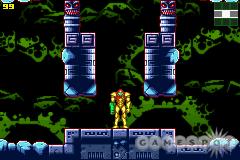
I'll come out and admit it. As much as I consider myself a diehard Metroid fan, I didn't really care for the original. To put a finer point on it, I feel pretty much the same way about it as I do about the film Stargate--a solid idea, but the execution left a feeling that there was potential for something much greater. But as it is, it merely gets the nod from me as the title that kicked off a series I adore. It was a project with lofty aspirations that just bit off more than it could chew. Well, at least until now.
But I tell you, when that elevator drops me down into the empty halls of Brinstar, and that classic theme comes up in my headphones, my foot just starts tapping. Before I know it, there's a huge grin on my face, and I'm overwhelmed with joy at reuniting with all the classic Metroid power-ups, from the high jump to the screw attack, like they were long-lost friends. But the very moment I pull myself out of the game, it is immediately apparent what has just happened. I've been had--in a rather delightful way, mind you. It seems the engineers at Nintendo went through all the key moments of the original 2D Metroid games with a fine-tooth comb, finding the ones that jerked at the nostalgic heartstrings of gamers the hardest and polishing them up in just the right way. Fortunately, Nintendo loaded up all parts in between with really tight gameplay, but looking at it from the outside, I almost feel like I've been tricked into liking this game. I have to say, though, I don't really mind one bit.
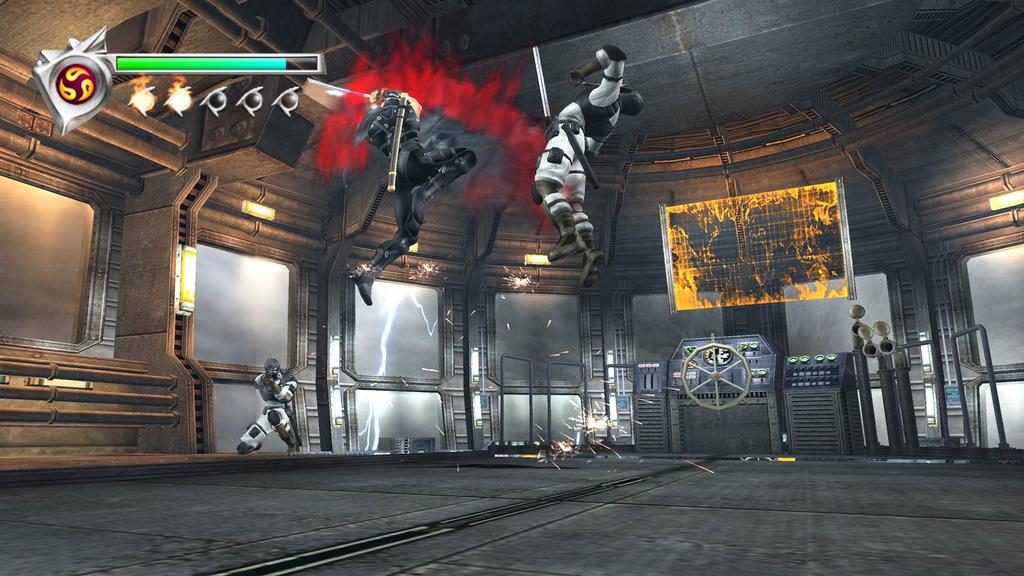
Maybe that shouldn't be a problem, but for some reason I can't let it go. The most memorable, enjoyable parts of Metroid: Zero Mission are its really nostalgic bits, and that's oftentimes enough for me to shelve it as a guilty pleasure. But when you get right down to it, we play games to be entertained, and to that end, Zero Mission is successful--even if its success is accomplished by triggering the warm and familiar synapses in my brain, rather than the unexplored and underused ones. There are titles coming with roots in classic gaming--specifically, Tecmo's new Ninja Gaiden game--and I'll be curious to see if they employ a similar set of tricks to win the player's favor.
| Craig Beers Associate Producer, GameSpot Live |
OMG @ Ph.D.
I picked up the paper when I was in Florida a couple of weeks ago and found an article about getting a Ph.D. in video games. I was, naturally, intrigued. The article was in the Orlando Sentinel on February 15, by the way, but it was by the Associated Press, so I'm sure it has appeared somewhere in one of your local papers. The article was about ludology, which is, according to the article, the Latin name for the study of video games and the ways it can be applied. I'm personally rather excited about the prospect of the convergence of interactive entertainment and academia, but I'll talk about that shortly.

One part of the article, which discussed critiquing video games, struck me as the statement of a gaming neophyte. It asked "How do you judge a game? As you would a novel? Should we think up a whole new vocabulary for evaluating games?" Hate to tell you, but this has been going on for years, well before any college professor decided to take notice. I don't need someone who just graduated from school telling me how to rate a game, just because he has a Ph.D. Real-world experience--in my case 20 years--is much more useful for determining the quality of a game, whether on a personal or professional basis. I think we've done a pretty good job on our own creating new vocabulary. "MMORPG," "frag," and "offline PK" are terms created or otherwise appropriated to apply to the gaming world.
I think this statement should have had a more appropriate focus. Communities of gamers are created, and they interact with each other like any other social group. How about studying how these social microcosms affect language? "LOL" and "OMG" have become so pervasive in digital text communications that they've made the crossover into real-life conversations. Even though the terms originated in chat rooms, I think gaming has had a hand in propelling them into everyday language. I also think holding games up against movies or books would be an appropriate focus. A 10-hour game purchased for $50 would provide $5 per hour of entertainment, and a two-hour movie at $10 a ticket would also provide $5 per hour of entertainment. But does this mean the entertainment offered by each form is equal? It is indeed the start of a potentially interesting, and heated, conversation.
Other than these discrepancies, I thought the article brought up some genuinely thought-provoking questions and ideas. Do video games have the same capacity for storytelling? I think so, but games still have a way to go before their stories can be considered epic. Why is violence in Homer's The Odyssey more acceptable than violence in Grand Theft Auto III? A very good question indeed. It seems like works of literature aren't held up to the same stringent content standards as video games these days.

One topic in the article that I found especially appealing concerned behavior in massively multiplayer games. I think this is a largely untapped social experiment. People's behavior when they take on a digital alter ego can be absolutely fascinating. In the real world you can extrapolate information about social structures by watching anything from pigeons fighting over food to the way commuters react to a loud person on the bus. Imagine what social scientists could do with online games like EverQuest. We can't test theories about certain things in real life for obvious reasons--such as what happens in a land devoid of laws--but we can study whether players would rampantly murder other players for loot in a game if there were no penalties. Will players band together to create their own laws and punish those who resist? Virtual worlds hold so much potential, and I think the Department of Defense is on the right track with its recent announcement about plans to create a virtual version of Earth. Strange as it may sound, perhaps the Ph.D. in gaming could help us unlock new secrets about ourselves.
| Aaron McMillan GuestSpotter |
Sorry, Video Games Are Real: Just Not the Way You Think
I love video games. I have been playing them almost since their advent. I have spent hours perfecting Space Invaders, days living in the 8th world of Super Mario, and almost a whole year looking for those darn chozo artifacts in Metroid Prime. I'm old enough to know that I won't be outgrowing gaming like so many of my friends, but I also admit that I no longer feel any desire to dress like a hobbit while watching The Lord of the Rings. Time may move on, but one thing apparently will remain--my love of video gaming.
Because of this love, I have long watched from the sidelines as other gamers debate, quite heatedly, about the relationship between video games and our violent culture. Recently a fellow gamer defended the violent content of many games very clearly and eloquently, right here in GameSpotting. I say bravo, there's not enough clear discourse on this issue. At the same time, though, I must disagree. Violence in video games is a problem, and it does influence the people who play them in a negative manner.
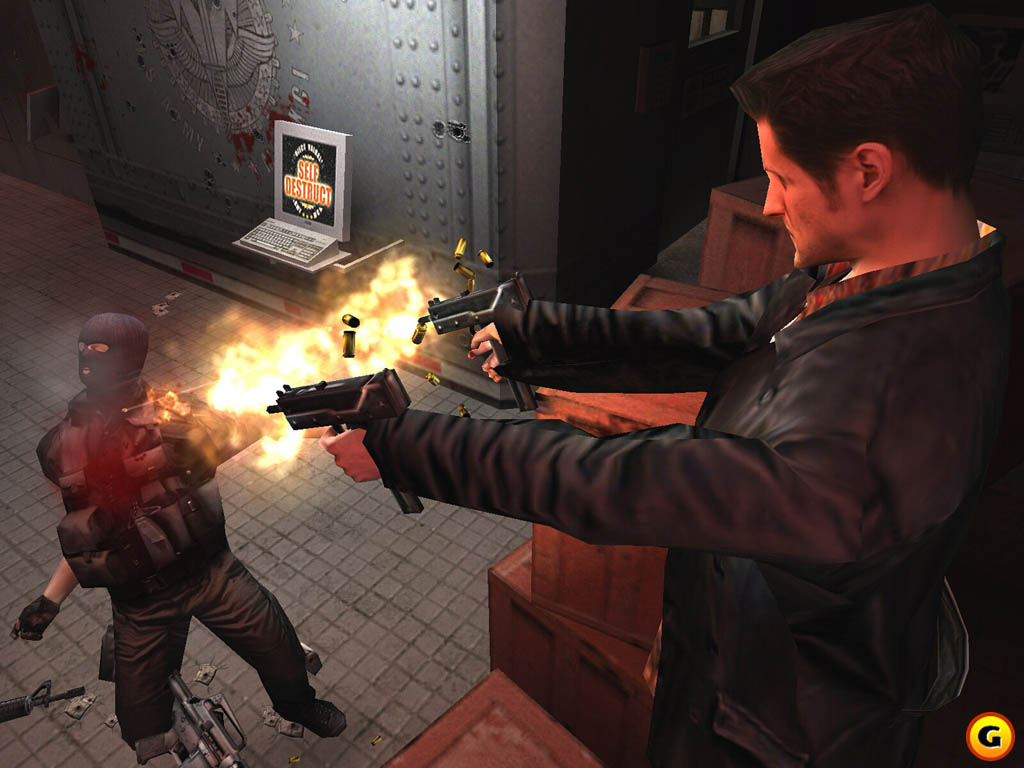
Those who would defend gaming as it exists today usually express one common opinion. It is the concerted belief that because video games (like books and movies) are not "real" (that is, they are vicarious or virtual fantasies played out on a screen and in the mind of the gamer), they cannot impact how one acts in the "real" world, or at the very least, that one must already be "insane" to allow them to. It is taken as a sign of maturity that one can "handle" increasing amounts of gore and violence--oh I mean "realism"--without any side effects.
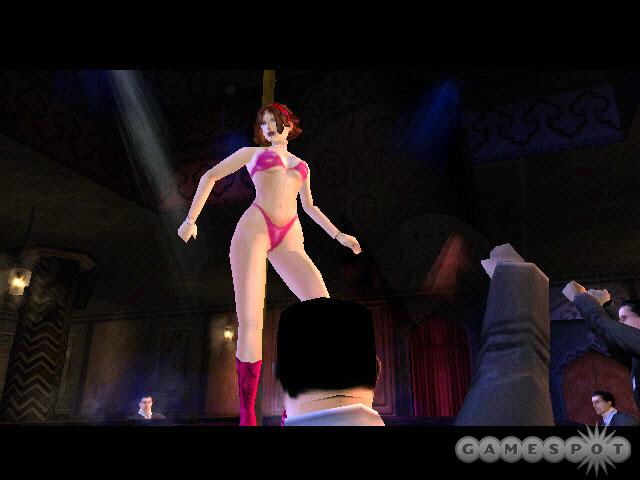
The fact is, games are real. They really do exist, and when I imagine myself kicking some dude in Soul Calibur, some part of me really is kicking that guy. That's precisely why it's so satisfying. When I'm jumping to some far-off ledge in Splinter Cell, I really do hold my breath, and when I die, some part of me physically reacts. That's why the more realistic games get, the more intense the rush from playing them is. The more visceral, more real the experience, the better the fantasy becomes. You are your mind, and if you play games, pretending to kill hundreds of thugs in Max Payne really did happen, to a certain extent, and you are impacted. Don't fall into the silly trap of thinking that because you haven't gone out and killed thugs afterward that you weren't impacted. Those kinds of arguments are for those who simply want to justify something they love doing. I propose that violent games don't make people kill, but rather, they make people's "souls" more cold, and they make societies less resistant to the pressure to regress. Millions of gamers are not noticeably changed by their gaming, so much as their gaming changes the society around them, and that, in turn, changes them.
Another way of expressing this view is to claim that video games are "just entertainment," as if the fact that something is only intended for fun has anything at all to do with its impact. It is entirely possible, and common, for harmless aims to result in negative consequences. Defending something by calling it entertainment is not to defend it at all. Gamers have long struggled to rid themselves of the stereotype that they are all 14-year-old boys, yet we act just like it when we don't police our own passion and once again force "the adults" (that is, congressmen, educators, and the media) to come in and clean things up for us. Let's not let that happen.
Got a news tip or want to contact us directly? Email news@gamespot.com

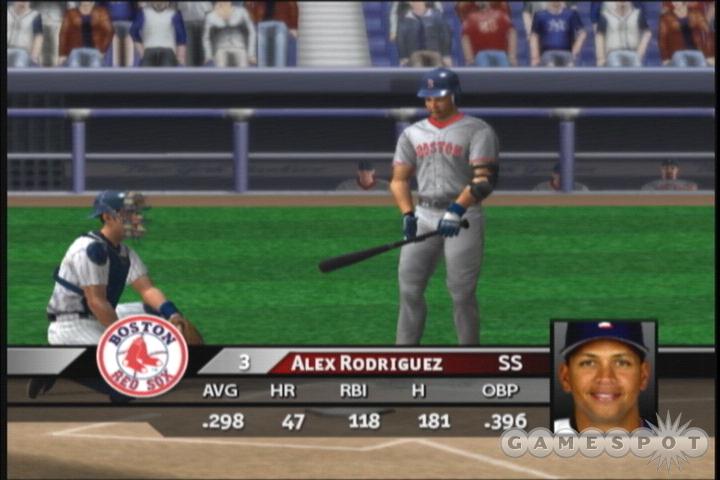
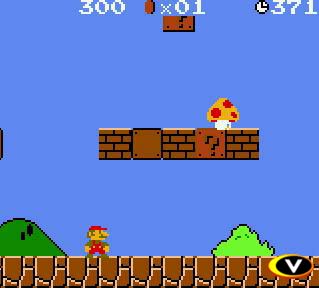
Join the conversation